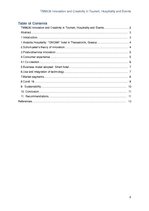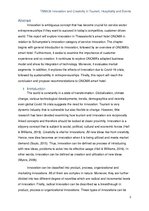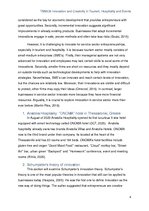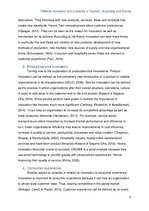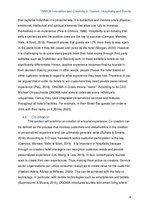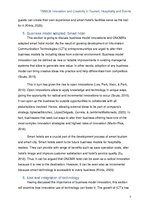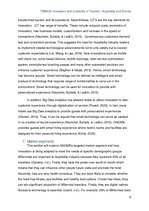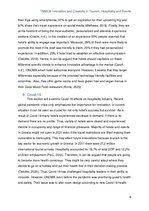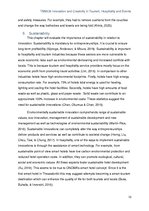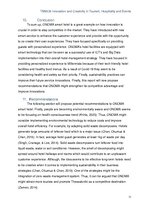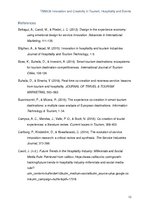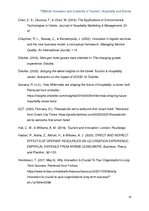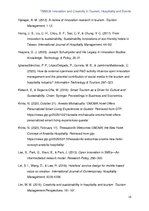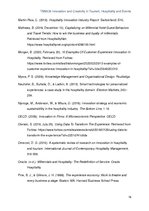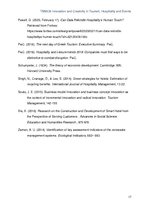-
Innovation and Creativity at Onoma Smart Hotel in Thessaloniki
Referāts15 Tūrisms, viesmīlība, Uzņēmējdarbība, Vēsture, kultūra
| Nr. | Sadaļas nosaukums | Lpp. |
| Abstract | 3 | |
| 1. | Introduction | 3 |
| 2. | Anatolia Hospitality: ‘’ONOMA’’ hotel in Thessaloniki, Greece | 4 |
| 3. | Schumpeter’s theory of innovation | 4 |
| 4. | Product/service innovation | 5 |
| 5. | Consumer experience | 5 |
| 5.1. | Co-creation | 6 |
| 6. | Business model adopted: Smart hotel | 6 |
| 7. | Use and integration of technology | 7 |
| 8. | Market segments | 8 |
| 9. | Covid-19 | 8 |
| 10. | Sustainability | 9 |
| 11. | Conclusion | 10 |
| 12. | Recommendations | 10 |
| References | 12 |
11. Recommendations
The following section will propose potential recommendations to ONOMA smart hotel. Firstly, people are becoming environmentally aware and ONOMA seems to be focusing on health consciousness trend (Krinis, 2020). Thus, ONOMA might consider implementing environmental technology to reduce costs and improve overall hotel efficiency. For example, by adapting solid waste decomposers. Hotels generate large amounts of leftover food which is a major issue (Chan, Okumus & Chan, 2016). In fact, average hotel guest generates at least 1kg of waste per day (Singh, Cranage, & Lee, 2014). Solid waste decomposers turn leftover food into liquid waste, water or soil conditioner. However, the smell of decomposing might spread around hotel hallways and rooms which would contribute to an unpleasant customer experience. Although, the idea seems to be effective long-term hotels need to be creative when it comes to implementing sustainability in their business strategies (Chan, Okumus & Chan, 2016). One of the strategies might be the integration of zero-waste management system. Thus, it can be argued that ONOMA might attract more tourists and promote Thessaloniki as a competitive destination (Zaman, 2014).
…


